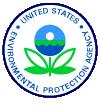Solvent Emission Reduction in the Modern Environmental Laboratory
Oral Presentation
Prepared by B. Jones, W. Jones, Z. Grosser
Horizon Technology, Inc., 16 Northwestern Drive, Salem, NH, 03079, United States
Contact Information: wrj@horizontechinc.com; 603-386-3638
ABSTRACT
Environmental laboratories have been pushed to the limit to keep costs low since a downward price spiral in the 1990’s made profits hard to maintain. The market contraction has made it very difficult for laboratories to do much beyond that required for the tasks at hand, although some laboratories have been able to focus on a greener approach to their work .(1)
Recent changes have caused laboratories to take a second look at air emissions, mostly arising from solvent evaporation of organic extracts. Through Title V and State Implementation Plans up to 10 tons of chlorinated solvent and up to 25 tons total of solvent may be emitted with a valid permit. For extremely small emitters, no permit is required if they are not at risk of exceeding the limit. Some states, such as Massachusetts have reduced the limit to one ton and recently found several laboratories were exceeding this and fined them. (2)
This paper will talk about several ways to reduce solvent emission, including reducing sample size to reduce the solvent amount that may be required for extraction. Since chromatographic techniques have improved tremendously over the years, the full capability of the chromatograph is not taken advantage of with older environmental methods. The use of solid phase extraction (SPE) can also be used to reduce the solvent needed for elution. Solid phase extraction is well established and offered as an alternative to liquid-liquid extraction in many US EPA methods. The third technique to help reduce solvent emissions is recapture of the solvent after the evaporation step. The requirements for this process will be examined and the feasibility evaluated.
1. Judy Morgan, J. Gentry, Green and Sustainable: An Approach for Environmental Labs, NEMC presentation, August 5, 2014, Washington, DC.
2. http://wwlp.com/2014/05/27/wmass-environmental-labs-to-pay-after-pollution-allegations/ , accessed August 13, 2014.
Oral Presentation
Prepared by B. Jones, W. Jones, Z. Grosser
Horizon Technology, Inc., 16 Northwestern Drive, Salem, NH, 03079, United States
Contact Information: wrj@horizontechinc.com; 603-386-3638
ABSTRACT
Environmental laboratories have been pushed to the limit to keep costs low since a downward price spiral in the 1990’s made profits hard to maintain. The market contraction has made it very difficult for laboratories to do much beyond that required for the tasks at hand, although some laboratories have been able to focus on a greener approach to their work .(1)
Recent changes have caused laboratories to take a second look at air emissions, mostly arising from solvent evaporation of organic extracts. Through Title V and State Implementation Plans up to 10 tons of chlorinated solvent and up to 25 tons total of solvent may be emitted with a valid permit. For extremely small emitters, no permit is required if they are not at risk of exceeding the limit. Some states, such as Massachusetts have reduced the limit to one ton and recently found several laboratories were exceeding this and fined them. (2)
This paper will talk about several ways to reduce solvent emission, including reducing sample size to reduce the solvent amount that may be required for extraction. Since chromatographic techniques have improved tremendously over the years, the full capability of the chromatograph is not taken advantage of with older environmental methods. The use of solid phase extraction (SPE) can also be used to reduce the solvent needed for elution. Solid phase extraction is well established and offered as an alternative to liquid-liquid extraction in many US EPA methods. The third technique to help reduce solvent emissions is recapture of the solvent after the evaporation step. The requirements for this process will be examined and the feasibility evaluated.
1. Judy Morgan, J. Gentry, Green and Sustainable: An Approach for Environmental Labs, NEMC presentation, August 5, 2014, Washington, DC.
2. http://wwlp.com/2014/05/27/wmass-environmental-labs-to-pay-after-pollution-allegations/ , accessed August 13, 2014.


